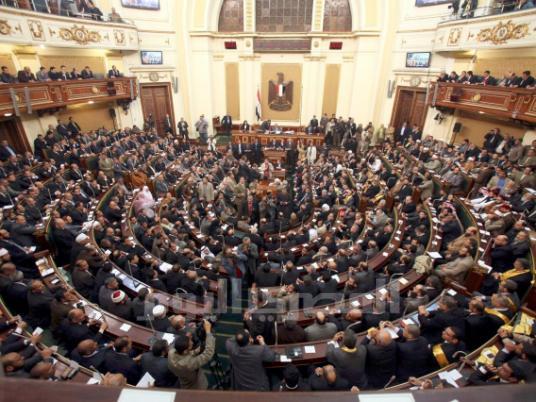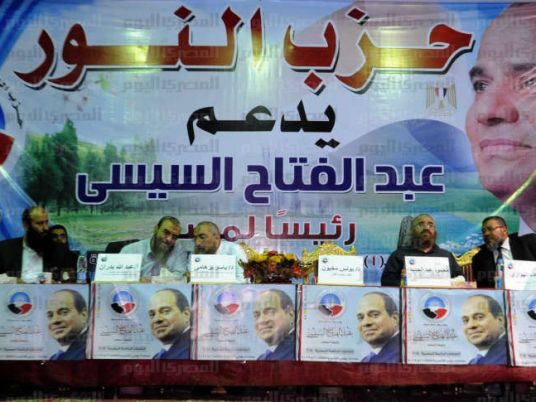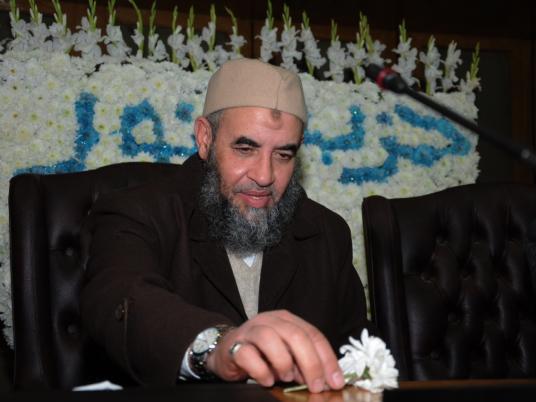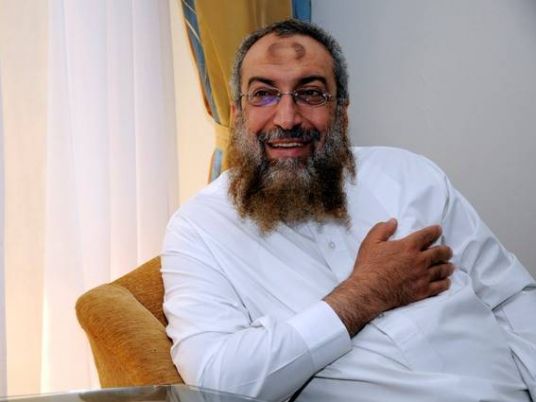
Parliament this week housed several heated discussions about the current economic impasse and lingering cases of corruption.
Prime Minister Kamal al-Ganzouri gave a statement to the People’s Assembly on Sunday in which he spoke for over an hour about the state of the economy. Ganzouri returned to a favorite government theme: protests and their deleterious effect on the already fragile economy.
Several MPs went off subject to raise issues during a discussion of a report presented by the Budget and Planning Committee.
Independent MP Hamdy al-Fakhrany criticized recent amendments made to the Investment Law by the ruling Supreme Council of the Armed Forces as “corrupt.” The amendments allow investors accused of fraud or misuse of funds to pay back disputed amounts rather than face criminal conviction.
Freedom and Justice Party MP Farid Ismail, meanwhile, alleged that telecommunications company Mobinil has built a 70-meter-high telecommunications tower on Egypt’s border that Israel used to spy on Egypt. The issue was raised when investigations in the case of a Jordanian man accused of spying for Israel revealed that his calls to Israeli intelligence were passed through Mobinil's towers stationed in North Sinai.
Ismail also said that Mobinil’s sale to a French company represents a “threat to national security” and alleged that officers from the State Security Investigation Services, recently renamed the National Security Agency, were and continue to be on the payroll of the state-owned Telecom Egypt.
Further on corruption, the FJP’s Yasser Abdel Rafea alleged that Suzanne Mubarak, the wife of the former president, is “still running the Bibliotheca Alexandrina” and that its director, Ismail Serageddin — against whom allegations of corruption have been made — appoints members of the dissolved National Democratic Party to staff positions at the library.
During a discussion of an Economic Affairs Committee report on the World Bank, several MPs expressed distrust of the World Bank’s intentions in Egypt.
Independent MP Al-Badry Farghaly asked why Egypt is “running after the World Bank” and why “no one is asking about what conditions [the World Bank] will impose on loans?”
Nour Party MP Shaaban Abdel Aleem rhetorically asked what the World Bank has given to Egypt, while Labor Party MP Magdy Qorqor said international financial institutions are “against development” in Egypt and demanded that Egypt cut relations with the World Bank and the International Monetary Fund.
Meanwhile, assembly Speaker Saad al-Katatny admonished the Interior Ministry for its failure to present a vision of how it would be restructured, despite promising to do so. Over the past two weeks, the ministry had announced it was undergoing major structural reforms, the details of which remain unknown.
Monday’s morning People’s Assembly session was dominated by discussion over proposed amendments to the Presidential Elections Law submitted by MPs Mohamed al-Omda, an independent, Gamal Hanafy of the FJP, and Hatem Azzam of the Egyptian Civilization Party.
Parliament voted in favor of the two amendments submitted, and the amendments will now be sent to the Supreme Constitutional Court for consideration. Under the amendments to two articles in the law, votes will be counted in polling stations in the presence of civil society figures and parliamentary candidates’ representatives.
This first count will then be signed by the head of the polling station and copies of the numbers given to candidates’ representatives before being sent to the central polling station in that constituency.
Article 28 of the Constitutional Declaration, the temporary constitution issued by the SCAF and approved in a countrywide March 2011 referendum, inevitably made an appearance during the debate over the amendments. The article stipulates that the results announced by the Presidential Elections Commission are final, carry the force of law and will not be subject to objections from any party.
Socialist Popular Alliance Party MP Abul Ezz al-Hariry ignited Islamist parties’ fury when he suggested that the Supreme Council of the Armed Forces could amend Article 28 were it not for an absence of political will from the Nour and FJP parties on the issue, suggesting that both have privately engaged with SCAF.
FJP MP Hussein Mohamed said that the Constitutional Declaration embodies the will of the people, which must be respected. He said that any amendment to the declaration would require a referendum, which would delay the presidential election.
Wasat Party MP Essam Sultan said that the SCAF did not have the legal authority to issue the Constitutional Declaration and that while he approves the amendments, “they are far removed from the real problem” contained in Article 28. Asala Party MP Adel Afify echoed this, saying that Article 28 is unconstitutional because it restricts judicial review of executive decisions.
Matters descended into farce when MP Mostafa Bakry was called on to defend himself on charges that he brought the PA into disrepute when he alleged that Mohamed ElBaradei, former presidential candidate, is directing American and Zionist agents seeking to destabilize the country.
In his usual impassioned style, Bakry claimed that he has documents, videos and CDs substantiating his allegation that ElBaradei is behind agents of chaos in Egypt. Bakry linked these allegations to the trial of 43 NGO workers accused of operating without government permission, making reference to the International Republic Institute, “where a map showing how Egypt will be split up was found” and “Freedom House, which played a dangerous role in the division of Sudan, Ukraine and Georgia.”
MPs voted against referring Bakry to a disciplinary investigation, and as Katatny announced a recess, a triumphant Bakry was surrounded by colleagues congratulating him. On the other side of the hall, inaudible rants poured forth from MPs incandescent with rage.
Bakry’s treatment is notably different than that of Egyptian Social Democratic Party MP Zyad Elelaimy following statements he made to the media about SCAF head Hussein Tantawi. MPs voted in favor of referring Elelaimy to the Ethics Committee for disciplinary action.
Meanwhile, committees continued to discuss draft laws and proposals.
The Human Rights Committee examined a draft law on the freedom of access to information submitted by the government, and heard submissions from Deputy Justice Minister for Legislative Affairs Omar al-Sherif and Amr Gharbeia, a researcher with the Egyptian Initiative for Personal Rights.
The Religious, Social and Religious Endowments Committee announced its “categorical rejection” of foreign interference via NGOs in assisting the poor and needy, and in particular women. Nour Party MP Ali Wanees said that a children’s home supervised by a foreign organization is taking its wards abroad and selling their organs.
The Proposals and Complaints Committee has approved a plan to revive building a bridge between Saudi Arabia and Egypt across the Gulf of Aqaba. The idea was previously put forward by the Saudi Arabian government during Hosni Mubarak’s tenure, but went nowhere.
Members of the political arm of Jama’a al-Islamiya, the Construction and Development Party, together with Wafd, Karama and Nour Party MPs, have submitted a draft law proposing that all political prisoners in Egypt be released. The draft has been sent to the Proposals and Complaints Committee for consideration.
The Religious, Social and Religious Endowments Committee, meanwhile, discussed the case of a Saudi Twitter user, Hamza al-Kashjary, who tweeted comments about the Prophet Mohamed some people interpreted as insulting to Islam.
Nour Party MP Adel Azazy called on Al-Azhar to form a committee responsible for checking the internet for sites insulting to Islam, which Azazy said the committee should then hack and close “as a form of jihad for God.”
The Foreign Affairs Committee called for the extradition of fugitive Egyptians in the United Kingdom, in particular Youssef Boutros-Ghali, the former minister of finance who has been sentenced in absentia to 30 years in prison.




